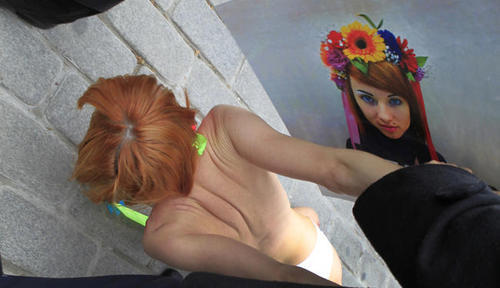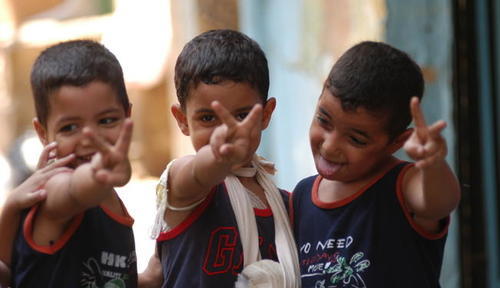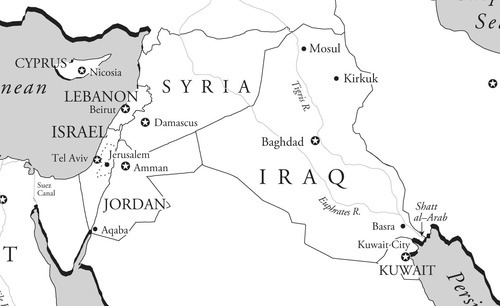Fair Observer is a news analysis platform providing a plurality of perspectives from around the world. www.fairobserver.com Follow us on twitter @myfairobserver
Don't wanna be here? Send us removal request.
Text
Femen: You're Doing It Wrong

Image: Copyright © Shutterstock. All Rights Reserved
Femen cannot present itself as a feminist, subversive, revolutionary movement.
4 notes
·
View notes
Text
Happy Birthday America

Image: Copyright © Shutterstock. All Rights Reserved
Only an honest conversation about inequality, education, and liberty will restore the American Dream.
0 notes
Text
Lethal Aid and the Syrian Chessboard

Image: Copyright © Shutterstock. All Rights Reserved
Distributing lethal aid to Syrian rebels will escalate the international proxy war.
Read More>>
0 notes
Text
Best of the Month

Image: Copyright © Shutterstock. All Rights Reserved
0 notes
Text
The Myths of Foreign Affairs School
Image: Copyright © Shutterstock. All Rights Reserved
The professions IR students imagine working in is different than the real world of actual IR professionals.
Read More>>
0 notes
Text
Refugee Week June 17-23

1 note
·
View note
Photo

On the Peninsula Report today we untangle the breaking story of covert government surveillance in the U.S.
The Silicon Valley Business Journal’s Luke Stangel joins us to talk about the National Security Agency, leaked documents and the balance between privacy and security.
And Fair Observer Editor-in-Chief Atul Singh joins us to talk about protests in Turkey and where the country is going next. We’re joined by Turkish journalists and commentators Ozsel Beleli and Zeynep Anar Ulu.
Listen here and tune in 3 p.m. Fridays on KZSU Stanford 90.1 FM, streaming live online at kzsulive.stanford.edu.
Photo copyright © Istanbul Jun 1: Shutterstock. All rights reserved.
3 notes
·
View notes
Text
India’s 21st Century Challenge: Scientific Education

Image: Copyright © Shutterstock. All Rights Reserved.
Economists agree that a country with a knowledge-based economy will take global leadership in the future. However, will India participate in the global competition and be a serious contender?
1 note
·
View note
Text
The Real Cost of Clothes Made in Bangladesh

*[This infographic was originally featured by KinderStuff.]
0 notes
Photo

7 notes
·
View notes
Text
Fashion Alternatives to Sykes–Picot
Some cleaner fashion alternatives to the Britain and France drawn Sykes-Picot.





Reblogged from: Karl reMarx
0 notes
Text
Abuse of Water in India

Image:Copyright © Shutterstock. All Rights Reserved
Awareness about the overuse and abuse of water is a must in India. The country cannot afford to incur further external debts for big projects which have comparatively little benefit for society.
Read More>>
1 note
·
View note
Text
The Middle East's Forgotten Minority: Female Palestinian Citizens of Israel

Copyright © Shutterstock. All Rights Reserved
As a minority within a minority, female Palestinian citizens of Israel face double discrimination: as women in a patriarchal society and as Palestinians in a Jewish country. Unfortunately, the situation of this minority has largely been ignored by mainstream discourses on women’s rights in the Middle East...
Read More>>
9 notes
·
View notes
Quote
I wanted to meet Lucien about two years ago and requested a meeting in London, but he wasn't very charming during our encounter.
Joseph Knobel Freud: My Uncle Freud, Fair Observer, April 2013
0 notes
Text
Central Casablanca: Walking Around Town
This is Abul-Hasanat typing away, sitting back, and drinking some mint tea in a Casablanca cafe. While I am sat in the cafe, there is a man walking outside who appears to be homeless. He asks customers dining outside for money. After being ignored and told to go away, he lays down on the floor shouting at people.
As the cafe's management try to forcefully move him, since he's blocking the pavement and disturbing customers, a lady wearing a hijab (headscarf) attends to his aid. While she walks away, another man asks her (or rather shouts), "why did you help him?" To which she says he is poor and needs to eat doesn't he?
The man has now left, and the pavement is clear with mostly male customers still sitting outside sipping their coffee and mingling with friends and colleagues. Some of these customers seem to be middle-class, white collar workers — perhaps in a government position at the nearby tribunal office or the many banks. Sitting in the cafe for 30 minutes now, I have spotted three men who are cleaning the shoes of these middle-class gentlemen, while another four men have walked past trying to sell their wares. I've also seen a few women and children trying to sell their goods by walking the streets, hoping to make some money — to live essentially.
However, it's not just these specific men cleaning shoes for a living. Walk down the street in the Old Medina and you will see many men (young and old) who clean shoes for a few measly Dirham. I am told that the cost ranges from 2 to 5 MAD (have a look at exchange rates and you will see how much this is). Although, given that each of these men have a fair amount of competition, these prices are bound to fluctuate.
The disparity between classes is noticeable in Morocco (and albeit, in many developing nations). In addition to the shoe-shiners, and the street merchants roaming the area, outside the nearby souq (market) you will see many Sub-Saharan African migrants trying to sell their goods. Walk towards the Hassan II Mosque and you'll head through another souq — but one with rather cheaper prices due to its target market of those with lower incomes and poorer backgrounds. Not far from the mosque, you'll head through a rather "bad" neighbourhood known for its drugs and prostitutes. Noticeably, in other areas, you may see many unemployed shabab (youth up to the age of 30). You may perhaps encounter people who cannot read — Morocco's illiteracy rate is substantial (higher in rural areas).
Jump into a taxi and you might have a chat with the driver about his daily life, trying to make a living. In fact, one taxi driver told me how difficult it was for him to buy (and even rent) a house or an apartment — something which he claimed is impossible on his low salary.
And then, just take a look at cars on the road. You'll probably see some vehicles from ten, twenty years ago. You'll also see some modern VWs, or a Peugeot. But then you'll see a brand new Mercedes-Benz S-Class, a Porsche Cayenne, or an Audi R8. The cars may be riding along Ain Diab by the beach — a middle- to upper-class area where the Morocco Mall is situated.
The drivers of these expensive cars are not khaleeji, however. (The playboys from the Arabian Peninsula are due in Morocco right now though.) No! They're Moroccan. Some of these drivers in their swanky cars simply have a very good job — perhaps in the government, finance, or maybe law. However, others are simply lucky to have been born into rich, elite families. Others have even found the means through state corruption.
The above is a rather simplified breakdown of the different class structure in the country. But all in all: sizeable gaps of classes between citizens — from the very rich to the very poor.
The question is: what is being done by the government to alleviate the woes of the everyday Moroccan? The woes of both young and old men who shine shoes for a living.
King Mohammed and the PJD-led coalition government: this type of socio-economic inequality was what fuelled the Arab Uprisings throughout the region. This, along with the education system, is where reform is deeply needed in Morocco.
April 10 2013, by Abul-Hasanat
0 notes

